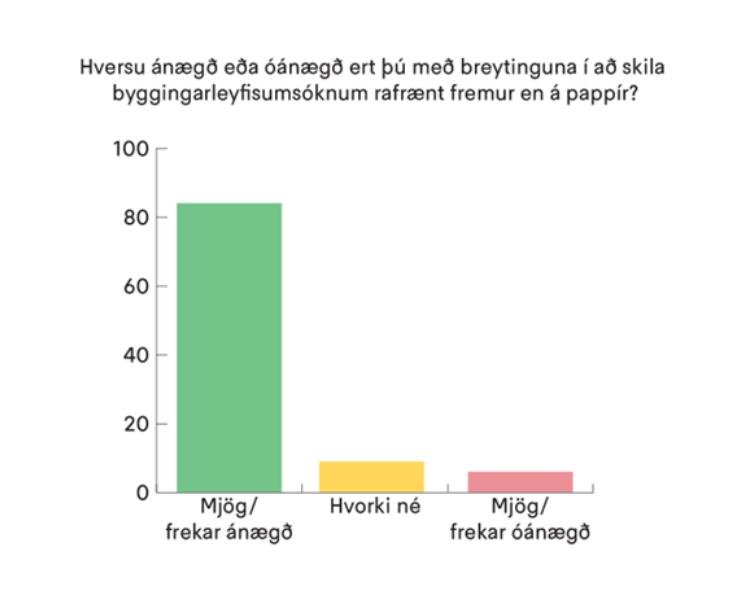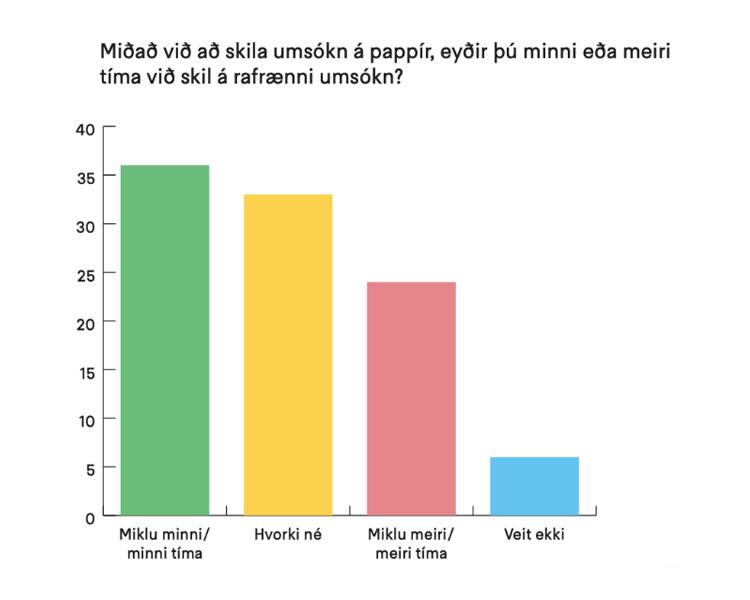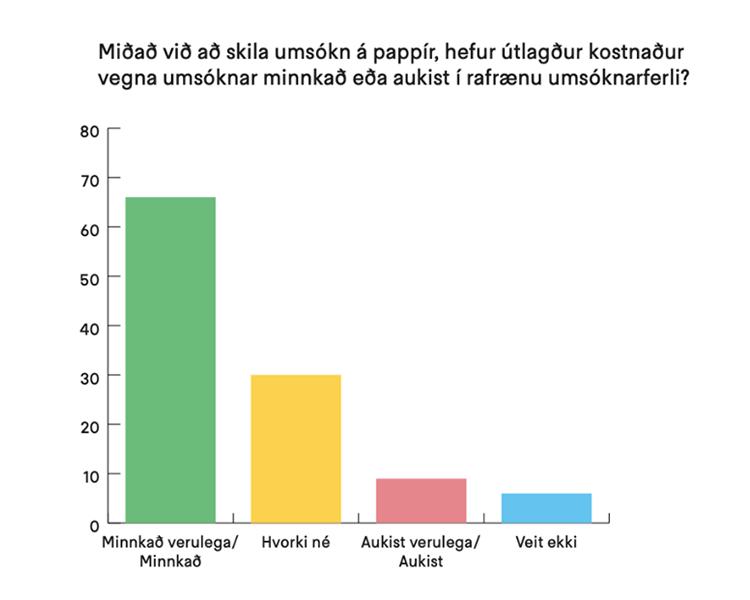Online building permit applications

Constructing a house can be complicated. If you plan to alter or construct a building in Reykjavík, you typically need to apply for a building permit, which until December 2022 was entirely paper-based.
Background
A building permit application is one of the most complex services provided by the City. It involves countless different registrations and approval forms, as well as contributions from various designers, architects, tradespeople, and City staff.
All applications go through weekly Permit Review Meetings, with almost 3,000 cases considered in 2022. All these cases come with a mountain of paperwork and supporting documents that applicants had to print out, have numerous people sign, approve, stamp, and then submit to Reykjavík City Service Center.
How much paper are we talking about?
- 4,680 visits to the City's Service Center per year related to building permits.
- In 78% of cases, a visit to the Service Center involved the delivery of paper documents.
- That's at least 300 kg of paper going through the Service Center annually.
- Applicants made a minimum of seven trips to collect various signatures or submit forms for every single application.
- A year's worth of driving with documents for building permits to the Service Center thus totaled around 65,514 km.
- To put that in context, the circumference of the earth is 40,075 km, and so applicants for building permits were driving more than around the globe each year to transport documents.
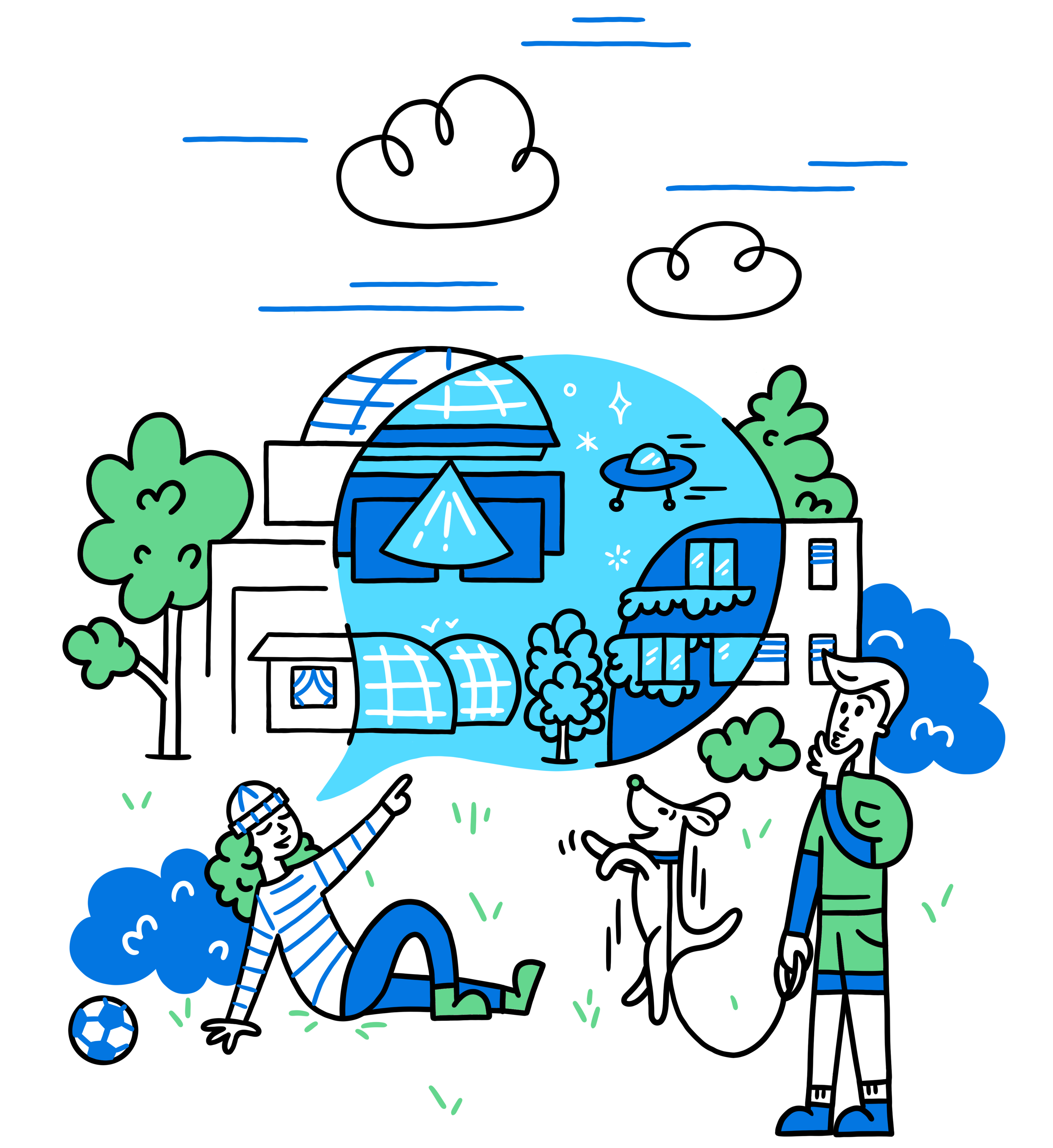
Objective
The need for an online process was thus significant. Moreover, the main service users and city residents had long called for improvements to the application process and clearer information. Thus, the main goals of the project were:
- To transition from paper to online applications
- To improve the provision of information
- To reduce manual labor and the burden on staff due to paper handling
User-centered design
Online building permit applications were the first major digital transformation project at the City's Department of Environment & Planning.
The project was based on user-centered design, focusing on rethinking the service and designing it from the perspective of both those who use and provide the service.
In this case, these were city residents, construction industry professionals, and the staff of the Building Commissioner and Reykjavík City Service Center.
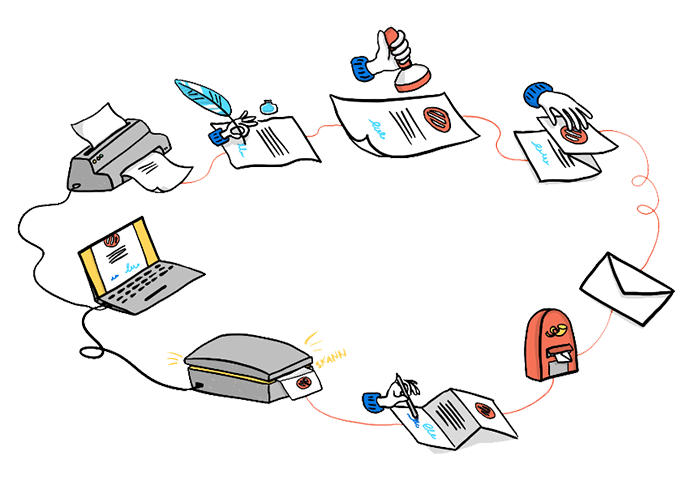
User wishes
Service users wanted to submit applications online, thereby saving time spent on printing, driving between locations, and submitting paper documents at Reykjavík City Service Center. Electronic communication and swift changes were top of mind for users.
City staff wanted to reduce manual labor in receiving and processing applications and accompanying documents, improve oversight and access to information, and enable as much as possible to be automatically retrievable in an online process.
Before the change
- Outdated system
- Extensive manual data entry
- Staff had to manually look up information to confirm permissions
- Manual signatures
- Paper, paper, paper
After the change
- A new digital system for submitting and managing applications
- Data automatically transfers between systems
- Automatic lookup by social security number to check for required permissions
- Electronic signatures
- No more paper! Everything is delivered online
- Updated information on how the process works on the City's website
Benefit
Less strain on the Service Center
Visits to the Service Center reduced by 155% year over year. We were able to reorganize the Service Center and use staff time for tasks other than printing and handling paper.
Users are satisfied!
To gauge applicants' satisfaction with the new arrangement, a survey was sent to all who had applied, totaling 83 individuals, of which 36 (43.4%) responded. Of those, 85% said they were very satisfied or somewhat satisfied with the change from paper to an online environment.
Saves time and money
Applicants believe that the cost of building permit applications has decreased for them, with 65% of applicants stating that costs have decreased significantly or somewhat. Additionally, more believed the new arrangement saved time, with 36% spending less time on online applications compared to 24% who felt they spent more time. It is hoped that increased applicant experience and City updates to the new interface will further reduce the time spent on the application.
